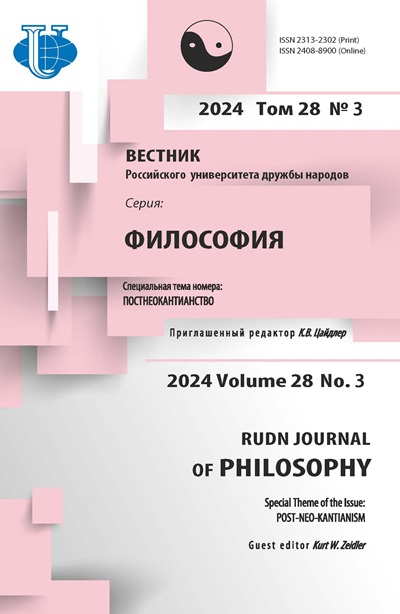Глобальное неравенство: транснациональные процессы и трансрегиональные связи
- Авторы: Боатка М.1
-
Учреждения:
- Институт латиноамериканских исследованийСвободный Университет
- Выпуск: № 1 (2012)
- Страницы: 116-131
- Раздел: Статьи
- URL: https://journals.rudn.ru/philosophy/article/view/11291
Цитировать
Полный текст
Аннотация
В современном понимании предполагается, что трансформация паттернов неравенства обусловливает цикл «новых» феноменов, которые с необходимостью порождают новые понятия, такие как «европеизация» и «транснационализация» социального неравенства. Автор статьи показывает, что, по крайней мере, начиная с периода европейской экспансии в Америке, неравенство было результатом транснациональных процессов, связанных с трансрегиональными связями между подвижными областями метрополии и периферии. В статье на примере Карибских островов - «первого колониального заднего двора Европы» - показана историческая преемственность между «креолизацией» как термином, первоначально созданным для описания карибских процессов, и того, что сегодня анализируется под маркой «транснационализации» (Западной) Европы. В работе доказывается, что осмысление продолжающихся структур власти, связывающих колониализм с (пост)колониальностью - необходимый элемент задачи креолизации Европы.
Ключевые слова
Об авторах
Мануэла Боатка
Институт латиноамериканских исследованийСвободный Университет
Email: mboatca@zedat.fu-berlin.de
Институт латиноамериканских исследованийСвободный Университет
Список литературы
- Wimmer, Andreas/Glick Schiller, Nina. Methodological Nationalism and Beyond. Nation-State Building, Migration and the Social Sciences// Global Networks 2 (4) 2002. P. 301-334.
- Delanty, Gerard/Rumford, Chris. Rethinking Europe: Social Theory and the Implications of Europeanization, London: Routledge, 2005.
- Mintz, Sidney. The Localization of Anthropological Practice. From Area Studies to Transnationalism // Critique of Anthropology 18 (2) 1998. P. 117-133.
- Grosfoguel, Ramón/Cervantes‐Rodríguez, Margarita/Mielants, Eric. Introduction. Caribbean Migrations to Western Europe and the United States // Caribbean Migrations to Western Europe and the United States, Philadelphia: Temple University Press, 2009. P. 1-17.
- Mintz, Sidney. Three Ancient Colonies. Caribbean Themes and Variations. Cambridge, MA: Harvard University Press, 2010; Rediker, Marcus. The Slave Ship, New York: Viking, 2007.
- Glick Schiller, Nina. Theorizing About and Beyond Transnational Processes // Grosfoguel, Ramón/Cervantes‐Rodríguez, Margarita/Mielants, Eric (eds.). Caribbean Migrations to Western Europe and the United States. Philadelphia: Temple University Press, 2009. P. 18-40.
- Therborn, Göran. European Modernity and Beyond. The Trajectory of European Societies, 1945-2000. London: Sage, 1995.
- UNDP: UNDP Chief: We must tackle inequality in Latin America, 2011. Available at: http://content.undp.org/go/newsroom/2011/may/undp-chief--we-must-tackle-inequality-in-latin-america.en?categoryID=349463 (last accessed July 7th, 2011).
- Korzeniewicz, Roberto Patricio/Moran, Timothy Patrick. Unveiling Inequality. A World-Historical Perspective. New York: Russell Sage Foundation, 2009.
- Acemoglu, Daron/ Johnson, Simon / Robinson, James A. Reversal of Fortune: Geography and Institutions in the Making of the Modern World Income Distribution // Quarterly Journal of Economics 117, 2002. P. 1231-1294.
- Frank, Andre Gunder. Lumpenbourgeoisie: Lumpendevelopment. Dependence, Class and Politics in Latin America. New York/London, 1972.
- Bergquist, Charles. The Paradox of American Development // Labor and the Course of American Democracy, New York: Verso, 1996.
- McMichael, Philip. Slavery in Capitalism. The Rise and Demise of the U.S. Ante-Bellum Cotton Culture // Theory and Society 20 (3), 1991. P. 321-349.
- Tomich, Dale. Through the Prism of Slavery. Labor, Capital, and the World Economy. Lanham: Rowman & Littlefield, 2004.
- Quijano, Aníbal. Coloniality of Power, Eurocentrism, and Latin America // Nepantla: Views from South, 1.3, 2000. P. 533-574.
- Quijano, Aníbal. El „Movimiento Indígena y las Cuestiones Pendientes en América Latina // Review. Journal of the Fernand Braudel Center, XXIX, 2, 2006. P. 189-220.
- Quijano, Aníbal. Colonialidad del Poder y Clasificación Social // Journal of World-Systems Research, VI, 2, 2000. P. 342-386.
- Hein, Wolfgang/Huhn, Sebastian. Entwicklungen im 19. und 20. Jahrhundert, Informationen zur politischen Bildung. Lateinamerika (300), available at: http://www.bpb.de/publikationen/OI86A1, 1,0,Entwicklungen_im_19_und_20_Jahrhundert.html, 2008. Last accessed July 9, 2011.
- van Amersfoort, Hans/van Niekerk, Mies. Einwanderung als koloniales Erbe: Akzeptanz, Nichtakzeptanz und Integration in den Niederlanden // Thränhardt, Dietrich/Hunger, Uwe. Migration im Spannungsfeld von Globalisierung und Nationalstaat, Wiesbaden: VS Verlag, 2003.
- Schachar, Ayelet. The Birthright Lottery. Citizenship and Global Inequality. Cambridge/London: Harvard UP, 2009.
- Mignolo, Walter. Citizenship, Knowledge, and the Limits of Humanity// American Literary History 18 (2). 2006. P. 312-331.
- Weiß, Anja. The Transnationalization of Social Inequality: Conceptualizing Social Position on a World Scale //Current Sociology 53 (4). 2005. P. 707-728.
- Beck, Ulrich. Beyond class and nation: reframing social inequalities in a globalizing world, British Journal of Sociology, 58 (4). 2007. P. 679-705.
- Boatcă, Manuela. Class vs. Other as Analytic Categories. The Selective Incorporation of Migrants into Theory // Terry-Ann Jones/Eric Mielants (eds.): Mass Migration in the World-System: Past, Present, and Future. Boulder/London: Paradigm Publishers, 2010. P. 38-54.
















